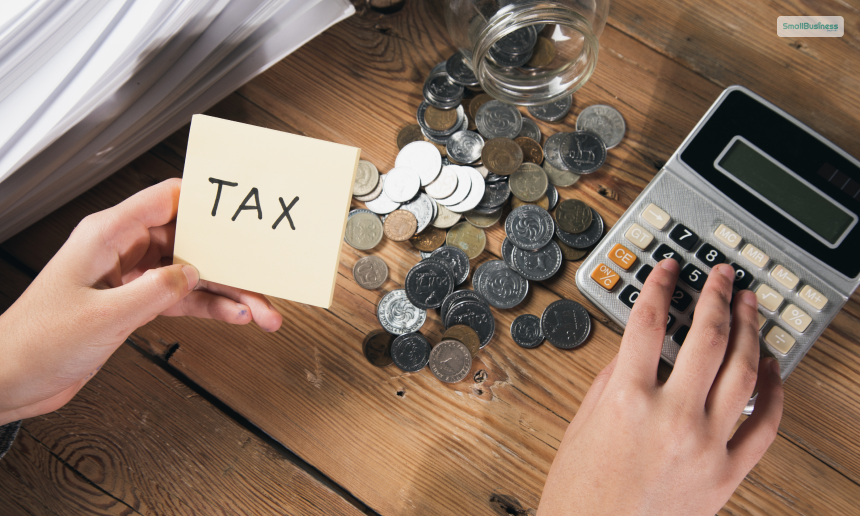You will need to pay consumption tax once you purchase goods and/ or services. The payment is made either directly or indirectly and comes in various forms. Some of the common forms of consumption taxes include tariffs, excise taxes, retail sales taxes, value-added taxes, and more. A form of income tax where all the savings are tax deductible also falls in the category of such taxes.
In this article, you will learn about consumption tax in general. Then, you will learn how this tax system works and how it is applied to spending. After that, we will discuss some of the major types of consumption taxes. Next up, we will share with you the major pros and cons of consumption tax. Finally, we will explain how the national consumption tax works. Hence, to learn more, read on through to the end of the article.
Consumption Tax Definition – What Is Consumption Tax?

Investopedia offers a definition, which is thus –
“A consumption tax is a tax on the purchase of a good or service. Consumption taxes can take the form of sales taxes, tariffs, excise, and other taxes on consumed goods and services. A consumption tax can also refer to a taxing system as a whole in which people are taxed based on how much they consume rather than how much they add to the economy (income tax).”
Consumers who pay a higher retail price for the goods and services they consume must pay this tax. Hence, the final consumer carries the burden of the tax.
Some of the major examples of consumption taxes include excise taxes, tariffs, retail sales taxes, value taxes, taxes on business receipts, usage taxes, import duties, and more. The final consumer is the entity that bears the responsibility of paying these taxes. However, this applies to those who pay a higher price for goods and services that they consume.
How Does Consumption Tax Work?

According to FreshBooks.com,
“Consumption tax is included in the increased price, which the vendor collects and sends to the relevant local, state, or federal government. Consumption taxes are frequently assessed at various rates on various commodities. This depends on whether such items are viewed as necessities (like food) or as luxury goods (such as jewelry).”
As already explained, the higher price that a consumer pays includes the consumption tax. The vendor collects this extra payment and remits this payment to the right federal, state, or local government. The government levies the consumption tax on different commodities at different rates. The deciding factors on what and how to levy depend on whether a commodity falls under the category of a necessary or a luxury item.
Basically, if one thinks far, if a consumption tax system is properly designed, then it would turn out to be rewarding for savers and penalizing for spenders.
What Are The Types Of Consumption Taxes?

The following are the major types of consumption taxes you must know:
1. Value-Added Tax
This tax is the amount which is the difference between the price of the raw material plus labor and the price of the finished goods from the producer. Therefore, this type of tax is levied on the “value-added” to the final consumable goods and services.
2. Excise Tax
This is a type of sales tax that the government applies on a specific class of goods and services like tobacco, alcohol, gasoline, and tourism. In some cases, the government applies excise taxes on certain goods to discourage their purchase, as it deems those items detrimental to the economy.
3. Retail Sales Tax
This is calculated by applying a percentage rate to the sales price that is taxable. Although sales taxes are present at the state level in the US, it is not a federal tax. The United States does not have this tax system at the federal level.
4. Import Duties
If you import something from outside the United States, you will have to pay an extra amount. You can calculate it as a percentage of the price of the item. In addition to that, the price of the good depends on the type of goods that you import or from the place that you import. There are other factors as well.
Pros And Cons Of Consumption Tax
The following are some of the major pros and cons:
| Pros Of Consumption Tax | Cons Of Consumption Tax |
|
|
What Is the National Consumption Tax?
According to the Tax Foundation,
“Currently, the U.S. taxes individuals and businesses with income taxes such as the individual income tax, corporate income tax, and capital gains taxes. While the U.S. does levy consumption taxes in the form of sales taxes and excise taxes, it does not have a national consumption tax.”
However, many other countries do have a national consumption tax. Some of the major countries where this tax is applicable at the national level include Australia, Canada, India, Japan, New Zealand, Singapore, and more.
Although the United States does not have a national consumption tax at the federal level, it does have a federal excise tax. Furthermore, this is also applicable to the purchase of certain types of goods and services, including gasoline, alcohol, cigarettes, and airline tickets.
Wrapping Up
Hope this article was helpful for you in understanding how consumption tax works in the United States. Generally, the Government levies this tax commonly on goods and services. Some of the common examples of such types of taxes include value-added tax and retail sales tax.
The main difference between an income tax and a consumption tax is that the former is assessed on earned money, while the latter is charged when consumers spend money. Do you have any more information to add regarding this type of tax? Share your ideas and views with us in the comments section below.
Continue Reading:




Leave A Comment